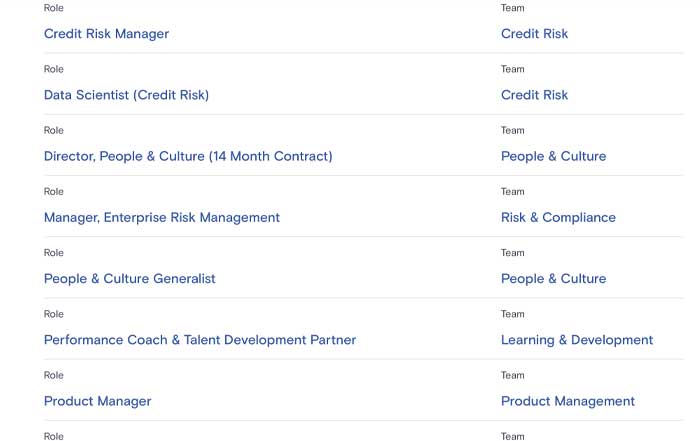In the contemporary professional landscape, how one conducts themselves in the workplace can significantly influence various aspects of their career, including relationships with colleagues, opportunities for advancement, and overall professional reputation. While skills and expertise undeniably play a crucial role in shaping one's career trajectory, the importance of professional behavior, which encompasses attitude, etiquette, and appearance, cannot be overstated. So what are the intricate details of professional office conduct, we aim to provide a thorough examination of the practices that contribute to maintaining a high level of professionalism in the workplace.
The Significance of Punctuality in the Professional Environment
One of the most fundamental aspects of professional behavior is punctuality. Arriving on time consistently is a clear indicator to colleagues and superiors alike that an individual respects the time of others, takes their responsibilities seriously, and can be relied upon to fulfill their duties. In the fast-paced environment of the modern workplace, where time is often equated with money, punctuality is not merely a courtesy—it is a necessity.
To ensure timely arrivals, professionals should employ practical strategies such as scheduling reminders or setting alarms, which serve as crucial tools in maintaining punctuality. For those who find themselves frequently navigating through traffic or dealing with unforeseen delays, it is advisable to plan to arrive a few minutes early, allowing a buffer to accommodate any unexpected occurrences. This approach not only helps in adhering to the expected time but also demonstrates a proactive attitude towards work commitments.
Moreover, adhering to the company’s established break routines is equally important. Employees are typically allotted specific timeframes for breaks and lunch hours, which should be strictly observed. For instance, if a company policy grants an hour for lunch and fifteen minutes for breaks, it is imperative that employees return to their duties within the stipulated time limits. This adherence reflects a respect for the company’s rules and an understanding of the importance of maintaining productivity throughout the workday.
Adhering to the Dress Code: A Reflection of Professionalism
In addition to punctuality, personal appearance plays a significant role in how one is perceived in the workplace. The way employees dress can have a profound impact on their professional image, influencing how they are viewed by both colleagues and clients. As representatives of their respective organizations, it is essential for professionals to present themselves in a manner that reflects the company’s values and standards.
Adopting a neat and clean appearance is not just about looking good; it’s about making a lasting positive impression on everyone one interacts with in the course of their work. To achieve this, professionals should familiarize themselves with their company’s dress code and strive to adhere to it meticulously. This might mean avoiding casual items such as flip-flops, tank tops, or ripped jeans, and instead opting for attire that is appropriate for the professional setting.
It’s important to remember that dressing professionally does not merely involve following a set of rules but also understanding the context in which one is working. Different workplaces may have varying expectations, and what is considered appropriate in one environment may not be in another. Therefore, taking the time to assess the institution’s dress code and aligning one’s wardrobe accordingly is a crucial step in demonstrating professionalism.
The Power of Respectful Communication
Communication is another cornerstone of professional conduct, and the way individuals communicate in the workplace can significantly impact their relationships with colleagues and their overall effectiveness in their roles. Professional language should be used consistently, even in seemingly casual conversations or emails, as this sets the tone for respectful and productive interactions.
One of the key aspects of professional communication is the avoidance of sharing excessive personal information with coworkers. While building relationships at work is important, it is equally crucial to maintain appropriate boundaries. Sensitive discussions, gossip, or any form of unprofessional dialogue should be avoided. If there is a need to confide in a coworker, it is best to do so in a private setting, away from the earshot of customers or management, to maintain a professional atmosphere.
During meetings and discussions, clear and respectful communication is vital. It is important to articulate thoughts in a manner that is easy for others to understand, while also paying close attention to what colleagues are saying. Even when there is a disagreement, recognizing and valuing the opinions of others fosters a collaborative environment and demonstrates maturity and professionalism.
In written communication, particularly emails, the choice of words and tone carries significant weight. Emails serve as a formal record of communication and can be referenced long after the conversation has taken place. Therefore, it is essential to ensure that all written correspondence is professional, concise, and free of any language that could be perceived as disrespectful or inappropriate.
The Importance of Honesty in Building Trust
Honesty is a fundamental aspect of professional conduct that can greatly enhance the quality of workplace relationships and the overall work environment. When employees are honest with each other, it builds a foundation of trust that can lead to increased motivation, productivity, and effective collaboration.
One of the key areas where honesty is crucial is in managing personal time and work commitments. If an employee needs time off for personal reasons or requires extra days to complete a project, it is important to be upfront about it. Transparency in such matters not only helps in managing expectations but also contributes to a culture of trust and respect.
Maintaining confidentiality is another critical aspect of professional honesty. Employees should be diligent in keeping client and company information private and should report any instances of dishonesty they encounter in the workplace to their supervisors. By doing so, they help to maintain the integrity of the organization and contribute to a trustworthy work environment.
Cultivating a Positive Attitude in the Workplace
A positive attitude is a valuable asset in any professional setting. Individuals who approach their work with energy and enthusiasm are not only more likely to excel in their roles but also have a positive influence on those around them. A positive mindset can inspire colleagues, leading to a more collaborative and productive work environment.
One of the ways to cultivate a positive attitude is to approach challenges with a problem-solving mindset rather than resorting to complaints. When faced with difficulties, professionals should strive to find solutions and take proactive steps to address the issues. This approach not only demonstrates resilience but also sets a positive example for others to follow.
In addition to maintaining a positive attitude themselves, professionals should also encourage and support their colleagues. Providing positive feedback and recognizing the efforts of teammates can boost morale and foster a sense of camaraderie. This, in turn, can lead to higher levels of engagement and productivity across the team.
Taking Responsibility and Leading by Example
Accountability is a hallmark of professional conduct. Recognized professionals are those who lead by example, taking responsibility for their actions and decisions. When mistakes are made, the most professional course of action is to acknowledge the error, take corrective measures, and work to prevent it from happening again.
Even in situations where multiple parties may have contributed to an error, it is important to avoid shifting blame onto others. Accepting responsibility, regardless of the circumstances, is a sign of maturity and professionalism. Managers often look favorably upon employees who can admit to mistakes and take steps to rectify them, as this behavior demonstrates a commitment to continuous improvement and personal accountability.
Asking for assistance when needed is also a crucial aspect of taking responsibility. Recognizing when one needs help and seeking it out shows self-awareness and a commitment to delivering quality work. It is far better to ask for support than to risk making errors that could have been avoided with a little guidance.
Navigating Social Media in the Professional Sphere
In today’s digital age, social media plays a significant role in both personal and professional lives. However, the use of social media during work hours should be approached with caution. Even if an employee’s role involves managing the company’s social media presence, it is important to avoid personal social media use during work hours, as it can be a significant distraction.
If colleagues or managers observe frequent personal social media use during work hours, it could raise concerns about the employee’s productivity and commitment to their work. To prevent this, professionals should restrict social media browsing to designated break times and disable notifications during work hours to minimize distractions.
Being mindful of social media usage not only helps maintain focus but also sets a positive example for others in the workplace. It demonstrates a commitment to professional responsibilities and a respect for the company’s time and resources.
The Value of Assisting and Collaborating with Colleagues
Collaboration is a key component of success in any professional environment. Assisting colleagues, particularly when they are overwhelmed with tasks or facing complex challenges, can greatly enhance team dynamics and overall productivity. Offering help not only strengthens professional relationships but also contributes to a more supportive and cohesive work environment.
When seeking feedback or assistance from colleagues, it is important to respect their opinions and expertise. Valuing the contributions of others fosters a collaborative spirit and can lead to more innovative solutions and better outcomes. Moreover, employees who are seen as helpful team members are often recognized by managers and may be considered for leadership roles.
By consistently offering assistance and working collaboratively, professionals can contribute to the success of their entire department. This cooperative approach not only benefits the individual but also enhances the overall performance of the team.
Demonstrating Reliability in Professional Commitments
Reliability is a trait that is highly valued in the workplace. Being dependable, whether it involves meeting deadlines, attending meetings on time, or consistently producing high-quality work, is essential for building trust with both colleagues and superiors.
When assigned a task, it is important to follow through and complete it within the agreed-upon timeframe while adhering to all necessary guidelines. Demonstrating reliability in this manner not only earns the trust of managers but can also lead to increased responsibilities and opportunities for career advancement.
A manager who knows they can rely on an employee to deliver quality work on time is more likely to delegate important tasks to that individual. This trust is built over time through consistent performance and a commitment to meeting professional obligations.
Professional Conduct Quiz
Finale
Professional conduct in the workplace encompasses a wide range of behaviors and practices, all of which contribute to an individual’s overall reputation and success. From punctuality and appearance to communication and collaboration, every aspect of professional behavior plays a role in shaping one’s career. By adhering to these guidelines, professionals can create a positive and productive work environment, build strong relationships with colleagues, and position themselves for continued growth and advancement in their careers.
As the workplace continues to evolve, the importance of maintaining high standards of professional conduct remains constant. By focusing on key areas such as honesty, responsibility, and reliability, professionals can not only achieve their own career goals but also contribute to the success of their organizations. In doing so, they uphold the values of professionalism and set a standard for others to follow.









